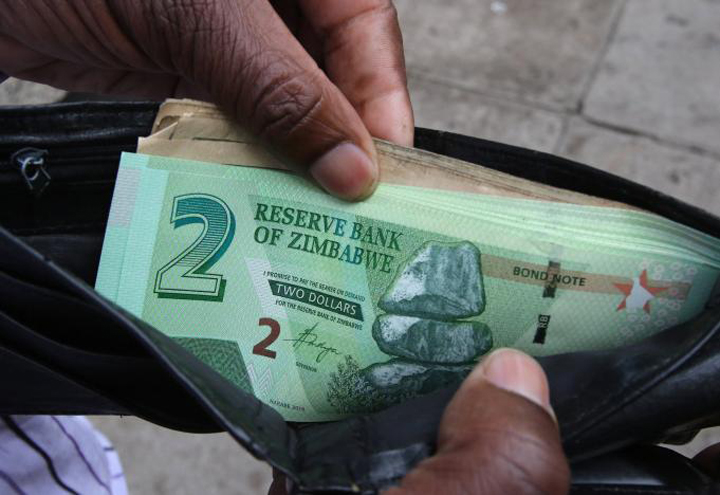Zimbabwe introduced its new currency today to mixed market reaction — broad acceptance by major retailers, informal traders and public transport operators — but without the crucial buy-in of fuel retailers.
The country dumped its inflation-ravaged currency — the Zimbabwe dollar — in 2009 after printing a $100 trillion note that could not buy a loaf of bread and adopted the use of multiple currencies, chiefly the US dollar and major trading partner South Africa’s rand.
President Robert Mugabe’s government says the new currency, which he has described as a surrogate of the US dollar, is designed to curb the smuggling of physical greenback from the informally dollarised economy and boost flagging exports — both major factors cited for a biting shortage of US dollar bills that has seen long lines at the banks since the turn of the year.
The surrogate currency, dubbed ‘bond notes’ as they are backed by a $200 million Afreximbank bond facility, has been pegged at par with the greenback and will circulate alongside the US dollar, rand and other currencies in Zimbabwe’s official multi-currency basket.
The introduction of the bond notes has stoked fears of a return of hyperinflation, which peaked at 500 billion percent in December 2008 according to the IMF, as well as pervasive shortages of basic goods and foodstuffs.
Months after announcing it would introduce a local currency, Zimbabwe’s central bank finally injected $12 million worth of bond notes today — in $2 and $5 bills — into the economy, in a bid to end the debilitating bank note shortage.
A $1 bond coin was also introduced, to join coins valued from 1 cent to 50 cents introduced in December 2014 to resolve the problem of small change under a different $50 million Afreximbank facility.
Banks started issuing the notes to depositors early today, with many offering a combination of both US dollar bills and bond notes, a mix which typically sardonic Zimbabweans branded ‘bollars’ in messages shared on various social media platforms.
Despite fears that the currency would be rejected by the transacting public, major retail outlets and informal traders who dominate Zimbabwe’s economy, were seen accepting the bond notes.
The currency did have a less than assured start, with some retail outlets claiming they could not accept it as they did not know the new notes’ security features.
Zimbabwe’s burgeoning informal sector, which some analysts believe to be bigger than the formal economy, is likely to have the final say on the government’s currency gamble.
Continued next page
(156 VIEWS)







0 Comments